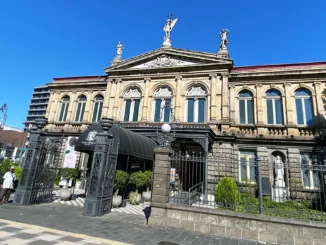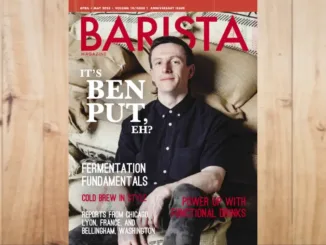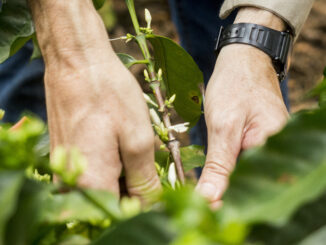
We get to know the new director of research & development at World Coffee Research.
BY CHRIS RYAN
BARISTA MAGAZINE ONLINE
Photos courtesy of World Coffee Research
Last month, nonprofit agricultural research organization World Coffee Research (WCR) added a new member to its team: Dr. Tania Humphrey, who will take over the senior scientific leadership position at WCR as director of research & development. A plant scientist who has worked extensively in horticultural research, Dr. Humphrey will support the launch of a first-of-its-kind global improvement network for coffee from WCR.
We talked to Dr. Humphrey about her plant science background, what’s interesting to her about coffee as a crop, and more.
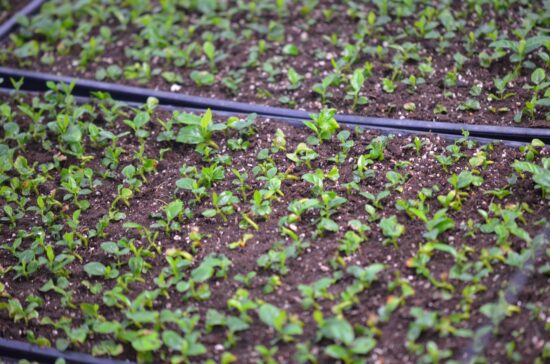
Chris Ryan: What was your relationship to coffee growing up?
Dr. Tania Humphrey: I am actually a tea drinker who has come to coffee relatively late in life. As a child growing up in Australia, we had a family friend who would regularly bring cases of fresh-packed coffee from Papua New Guinea. I always loved the smell, as I do now when my husband brews his morning espresso.
How did you become interested in plant science and horticultural research as a professional focus?
When I went into science, I initially jumped around between a variety of different topics that I found interesting. Then, as I learnt more about biology and the complex interactions between all forms of life, from the micro to the ecosystem scale, I became fascinated with the critical role that plants play in all of these systems—how they shape the environment around us and give us the air we breathe, the food we eat, and the products we use.
I wanted to understand how plants work and how we can use their resources in a more environmentally sustainable and equitable way. And I wanted to use this knowledge to actually do something—to make an impact in the world. After a brief stint in academia, I had the opportunity to join an independent, industry-focused horticultural research and innovation center. There, I came to learn the importance of industry engagement, and how critical it is to combine science with a business approach so that innovations actually make it out into the hands of growers and those who will use them.
You’re relatively new to the coffee sphere; from your outsider perspective, what is interesting to you about coffee as an agricultural product?
As an agricultural crop, coffee is relatively underdeveloped and, being a perennial tree crop, it presents some interesting biological challenges. Compared to grains or even many fruits and vegetables, where production is already highly refined, optimised, and efficient, coffee has enormous potential to make huge gains. There’s still so much we can do to improve productivity, quality, disease resistance, and adaptation to the growing environment. But also, coffee is more than an agricultural staple; it gives us much more than simple calories and nutrition essential for survival. Diversity of flavours, processing methodologies, the whole consumer experience, and global supply chains add nuance and complexity that makes it all extremely interesting.
Can you describe how you feel joining WCR? Why was the organization appealing to you?
I am thrilled to join WCR and be embarking on a new challenge at this point in my career. I am always learning and up for a new experience, and in WCR I saw the opportunity to continue using plant science to make real-world impact. For me, a narrower focus on variety development in just one crop, yet with a much broader geographical reach, made this especially interesting. It gives me an opportunity to apply my knowledge and experience while still challenging me to learn and grow.
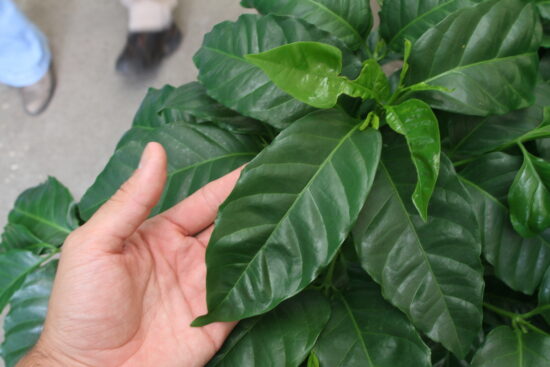
Finally, what are some things you enjoy doing outside of work?
In my downtime I love to spend time with my family, camping, hiking, and enjoying the outdoors. And I love to paint; I am an amateur artist in acrylic painting, mixed media, and textiles, and am proud to have had some of my pieces exhibited in local art galleries.


